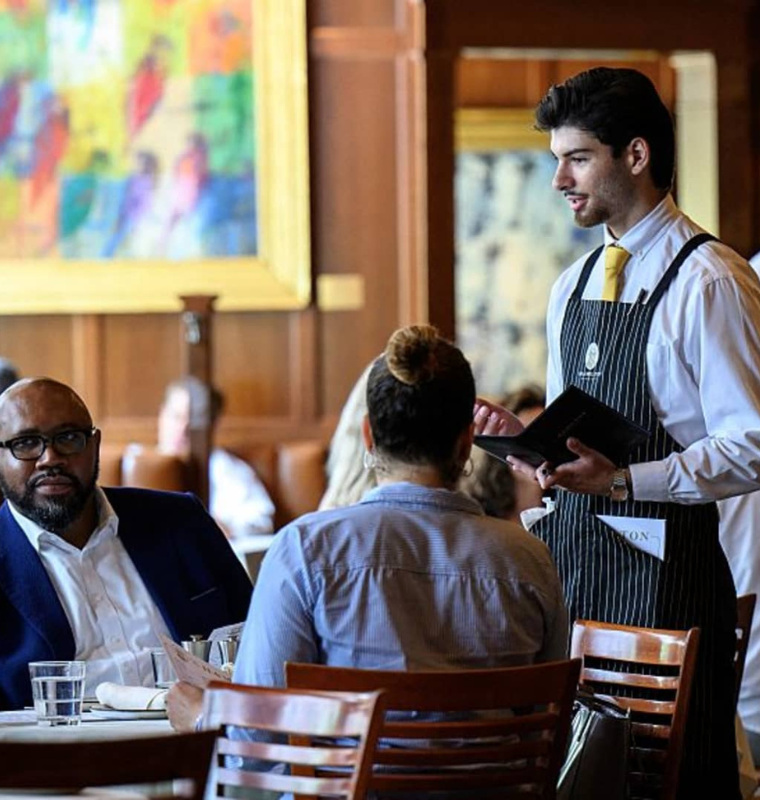The Illusion of Luxury: How Gen Z Turns Vacations Into Social Media Gold
The Illusion of Luxury: How Gen Z Turns Vacations Into Social Media Gold
By
David Goldfarb
Last updated:
September 4, 2025
First Published:
November 30, 2025

Photo: Business Daily
The Rise of the Faux-Luxury Lifestyle
Jon Morgan, co-founder of consulting firm Venture Smarter, recalls mentoring a 23-year-old Gen Z entrepreneur whose real life looked nothing like her online persona. For over a year, she carefully crafted the image of a $500,000-a-year luxury lifestyle while actually living on just $12,000 annually.
Her strategy was simple but effective. She purchased $200 day passes at exclusive Miami beach clubs, taking hundreds of photos in a single day. These images were then posted over weeks to give the illusion of an ongoing luxury lifestyle. For a mere $50 tip, she convinced concierges at high-end hotels like the Four Seasons to allow her short photo sessions in rooftop pools and luxury lobbies.
The results were staggering. Her following grew to 85,000 Instagram followers, leading to brand partnerships worth $180,000 a year. What began as smoke and mirrors turned into a profitable business model.
The Real Cost of Gen Z Travel
Gen Z is spending more on travel than any other generation. In 2024, the average spend reached $11,766 per traveler, according to Squaremouth. By 2025, 31% of Gen Z respondents in a Bankrate survey admitted they were willing to go into debt to fund vacations.
Yet many of these so-called luxury trips are just fragments of reality. Some rent expensive Airbnbs for a single night, split costs with multiple friends, and then use carefully staged photos to make it appear as though they spent weeks in luxury.
Property manager Daniel Rivera shared one striking example: a 24-year-old tenant posted photos from a $400-a-night Miami Airbnb while she was three weeks behind on her $1,800 rent. She later admitted she had split the rental with six friends for one night, purely for the photos.
Debt, Loans, and Financial Strain
Behind the glossy images is growing financial strain. Rivera noted that during tenant screenings, he has seen a 30% rise in applications with recent personal loan inquiries, many labeled as “vacation funding.” High debt-to-income ratios and maxed-out credit cards are common among these young applicants.
On Reddit, young travelers openly admit to funding vacations through debt. One user summed it up: “Was it financially irresponsible? Yes… Would I do it again? 1000%.” This mindset reflects a generational priority: experiences and appearances over financial security.
Framing the Perfect Image
Not all illusions involve direct spending. Some Gen Z travelers house-sit in wealthy neighborhoods, like Montclair and Short Hills in New Jersey, using the opportunity to stage content that suggests they live in luxury homes.
Mohd Rizwan, director at New Delhi-based travel company Travelosei, explained that younger travelers often focus on only the most “Instagrammable” aspects of a trip. Instead of documenting entire vacations, they highlight luxury meals, scenic pools, or rooftop views to give the impression of a much grander lifestyle.
The Bigger Picture
For many Gen Zs, luxury is less about lived experience and more about perceived status. Social media has blurred the line between aspiration and reality, creating a cycle where debt, staged content, and carefully framed images fuel both influence and income.
Popular articles
Subscribe to unlock premium content
Gilded Holidays in Fashion

How HBO Max Used the Power of Limited Series to Redefine Streaming Competition and Challenge Netflix’s Binge Culture

How Stranger Things Revolutionized Netflix and Redefined Streaming Entertainment

Gilded Holidays in Fashion

How HBO Max Used the Power of Limited Series to Redefine Streaming Competition and Challenge Netflix’s Binge Culture

Gilded Holidays in Fashion









